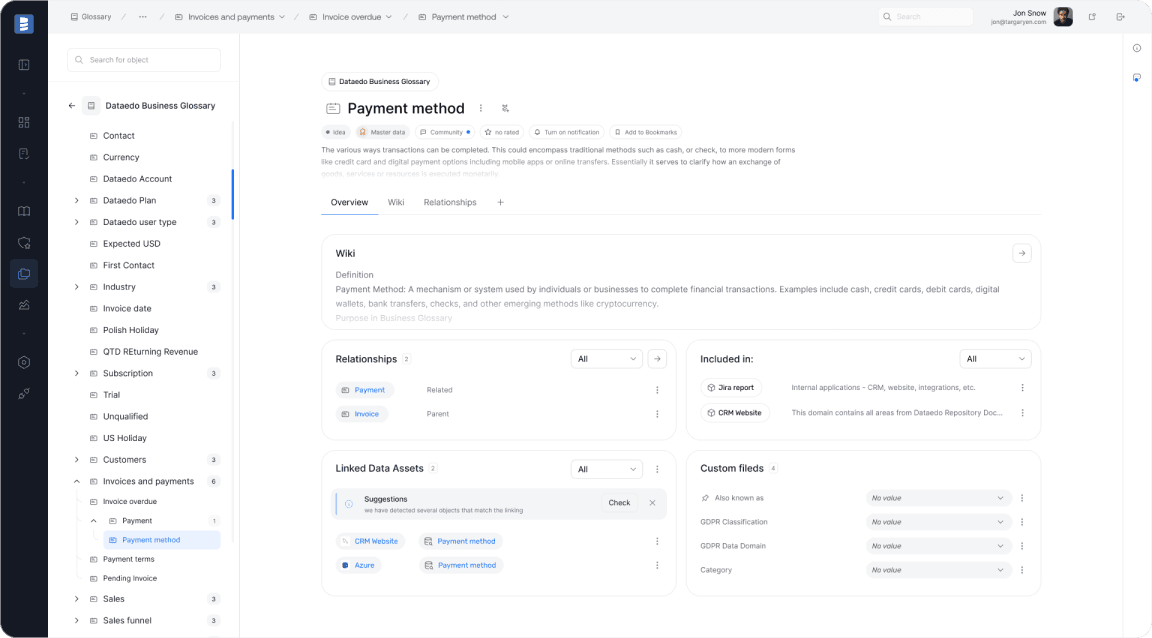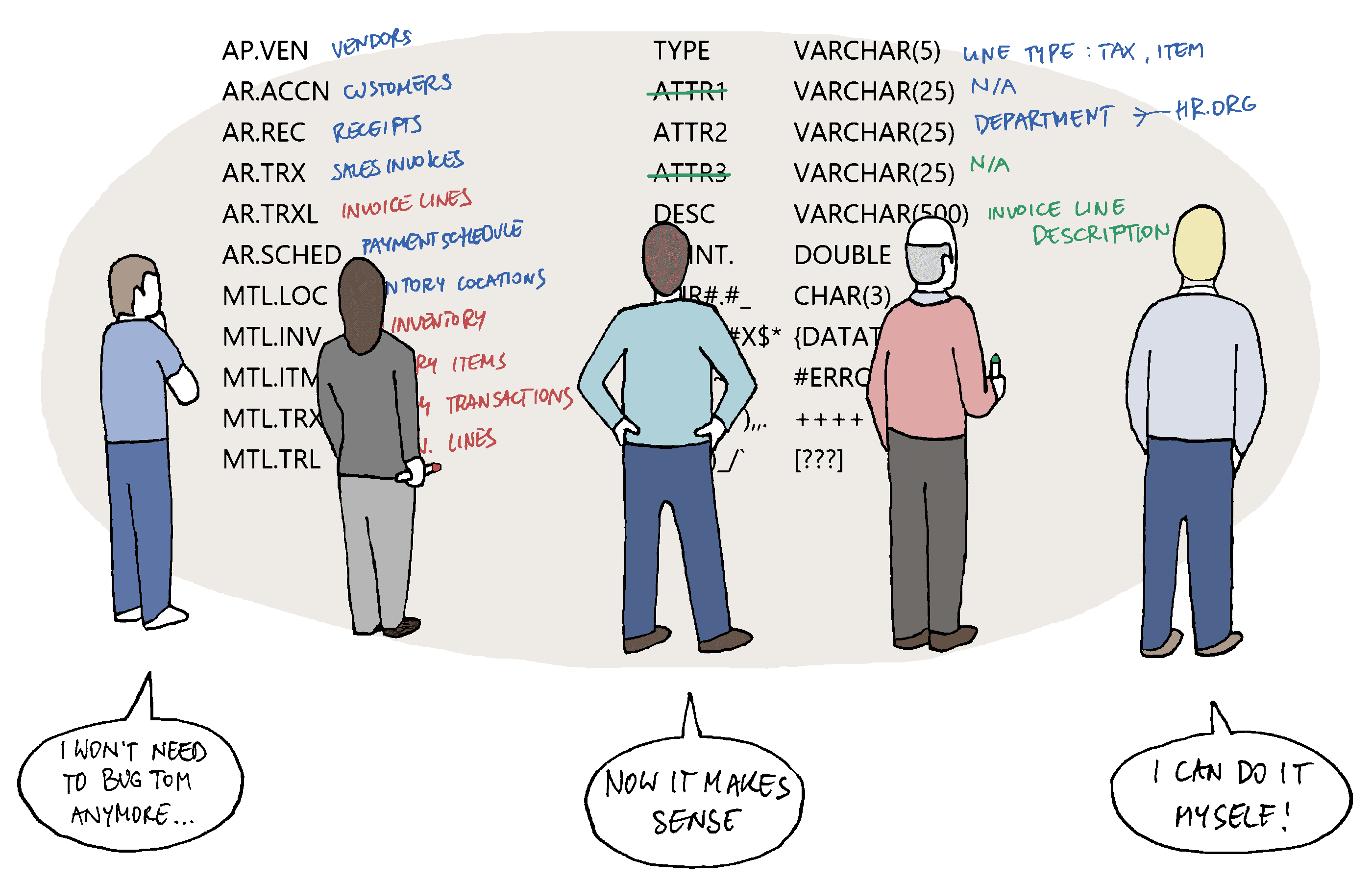Lightweight but powerful
Data Catalog software
Centralize your
metadata management
Leverage powerful metadata management to bring all your data sources and data assets into one unified platform. Create a single source of truth that improves data governance, enables discovery, and ensures your teams can trust and understand the data they use.
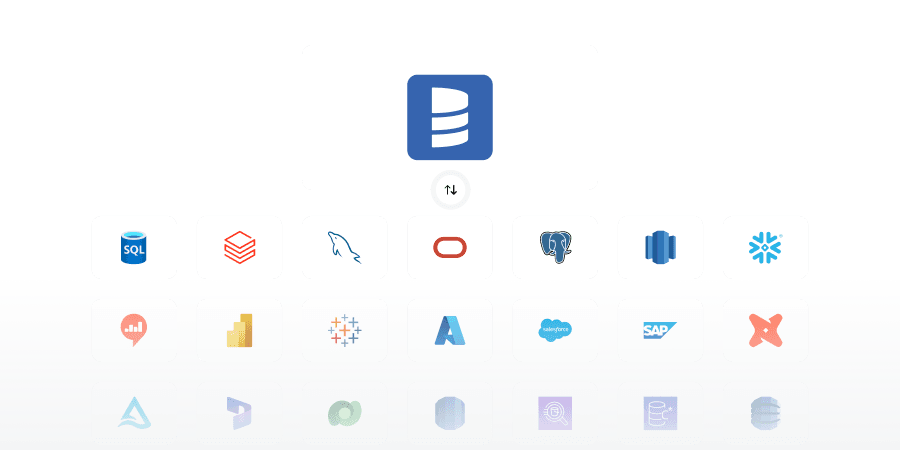
Build a common language
with a business glossary
Create and maintain a universal glossary of business terms, metrics, and concepts. Link terms to physical data assets in your catalog to ensure consistent definitions across teams, reduce misinterpretation, and improve data literacy.
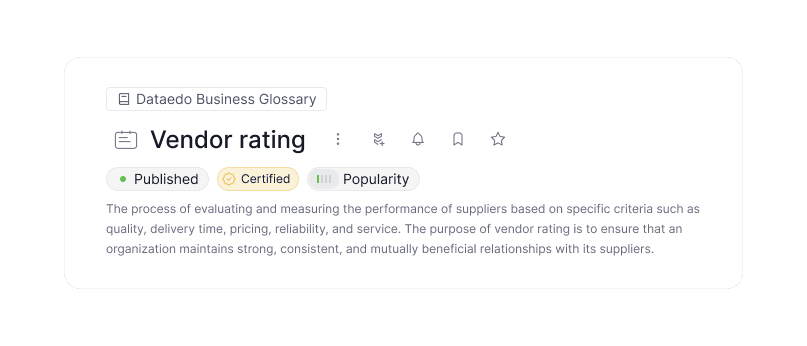
Build a knowledge base
for your data
Create wiki-like portals for your organization’s data by structuring Business Domains, such as Marketing, Finance, Sales, or Operations. Organize tables, terms, metrics, and processes into meaningful domains and sub-domains, so teams can easily explore, understand, and contribute knowledge about your data assets.

Create and manage
data products
Transform your data assets into reusable Data Products that represent real-world use cases, like dashboards, reports, or APIs. Assign clear owners, improve discoverability, and provide full context so teams can understand, trust, and leverage the data efficiently.
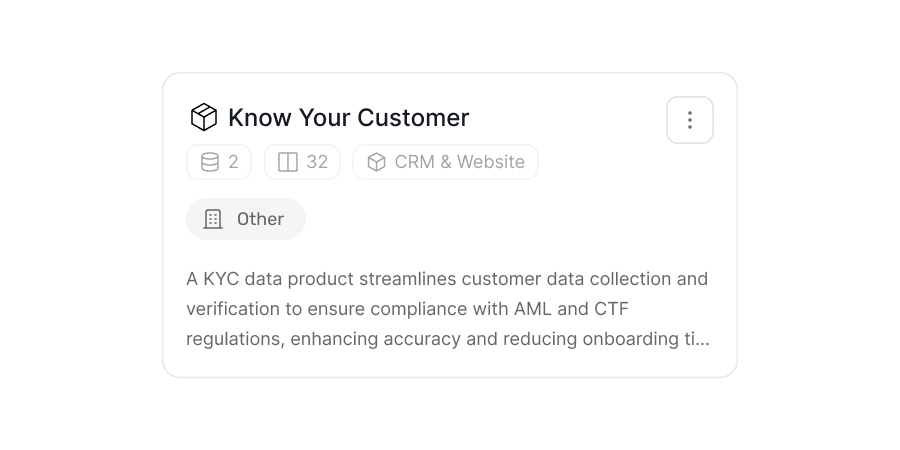
Visualize your data flow
with data lineage diagrams
Visualize how data moves through your systems from source to destination. Understand transformations, dependencies, and impacts across tables, columns, and processes to improve transparency, troubleshoot issues faster, and support compliance efforts.

Ensure trusted data
with data quality
Combine cataloging with automated data quality checks to identify errors, anomalies, or missing values before they propagate downstream. Data stewards can monitor quality trends, assign fixes, and maintain reliable data for analytics, AI, and reporting.
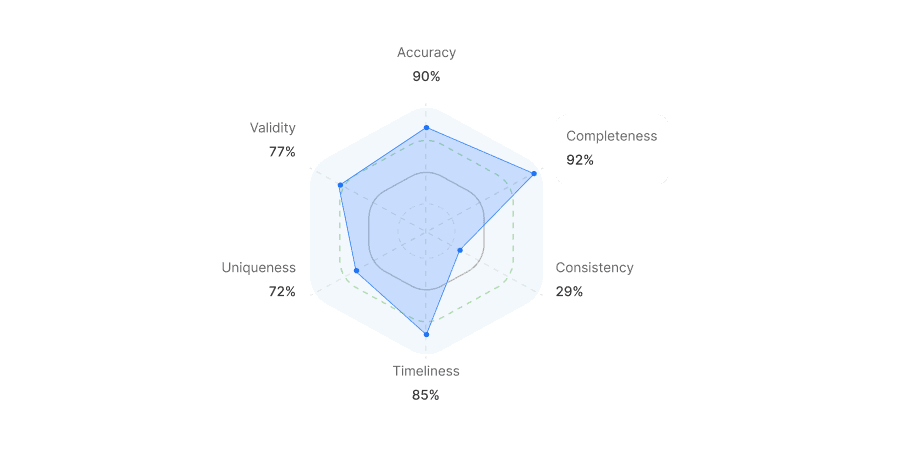
Equip Data Stewards
with powerful documentation tools
Steward Hub and AI-assisted documentation make it faster and easier for stewards to validate, and enrich metadata. Group related assets, link tables to terms, auto-generate descriptions, and maintain up-to-date metadata for your catalog.
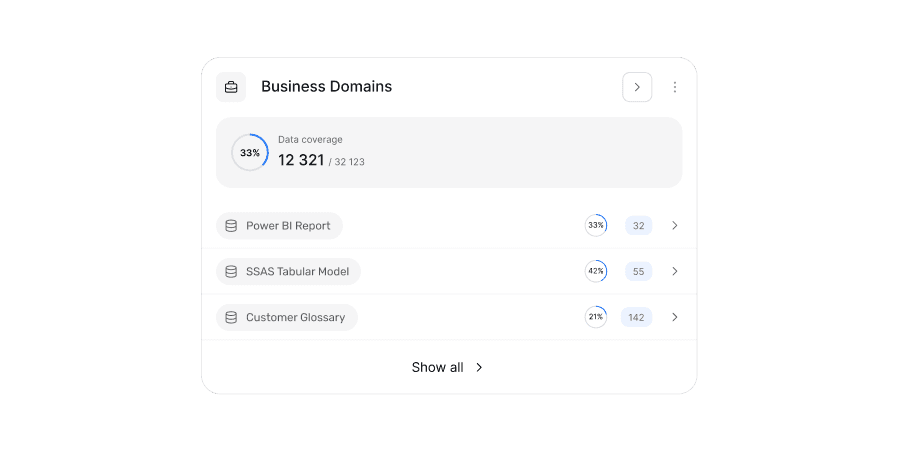
Strengthen data governance
and compliance
Discover and classify sensitive data, assign ownership, and manage roles. Monitor relational databases, file systems, and unstructured data for audit-readiness and regulatory compliance while reducing organizational risk.
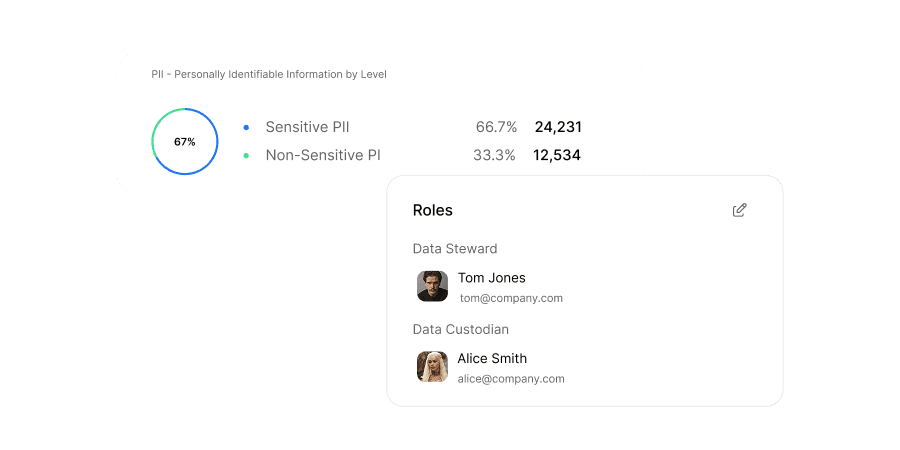
Foster collaboration
with Community
Empower teams to share knowledge, provide feedback, and ask questions directly in the catalog. Data stewards, owners, and business users can flag issues, assign tasks, and contribute insights, turning your data catalog into a living, collaborative resource.
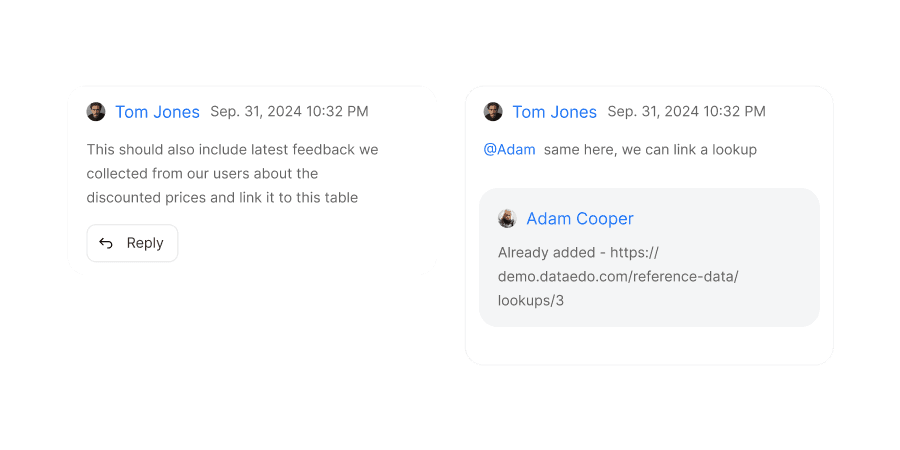
All your data sources in one place
With Dataedo, you can document your entire data ecosystem, including relational databases, unstructured data, file systems, ETLs, BI tools, data lakes, and applications, in one place.

Get value on day one
Connect your data sources and immediately extract metadata, data lineage, and data profiling insights. See the impact of your catalog from the very first day.
Flexible & secure deployment
Host on-premises, in your private cloud, or in a hybrid setup. Maintain full control over your data while meeting your organization’s security and compliance requirements.
Easy to set up & use
Start exploring and documenting your data immediately after connecting your data sources. Our intuitive interface is designed for both technical teams and business users.
Instant insights
Automatically capture metadata, relationships, and data flows to start understanding your data ecosystem immediately.
Dedicated onboarding manager
Receive guidance from a dedicated onboarding manager who provides training, answers questions, and ensures your catalog is productive and adopted by users.
Unlock the data catalog benefits
Enable data-driven decision making
Prepare your data for AI & ML
Provide clean, well-documented, and traceable data to fuel analytics, machine learning, and AI models with confidence.
Free the data from gatekeepers
Give everyone self-service access to the knowledge about data so they can create value and insights.
Empower business users and bridge the gap with IT
Help business users understand what data is available, how to read reports, and interpret key metrics, while keeping IT aligned.
Build a culture of sharing knowledge
Preserve and share organizational knowledge, enabling smarter analytics, AI, and reporting.
Reduce search time and boost productivity
Enable teams to quickly find the data they need. Spend less time hunting for information and more time analyzing it, accelerating decision-making and improving overall productivity.
Scale your team and quickly onboard new hires
Quickly onboard new hires and scale your data team with clear data context and easy-to-navigate catalog.
Why our customers love Dataedo?
Dataedo is a lightweight solution with great customer service and active product development (recently data quality). The ability to run SQL scripts on the repository brings additional flexibility."
We jump started all of our Data Governance efforts using the tool. We documented key databases quickly and easily and published the information to our analyst community."
Dataedo is an amazing tool that continues to grow and improve."
Datedo consistently improves while delivering exceptional support that is quick, competent, and highly reliable."
Dataedo excels at data cataloging, and the support from the Dataedo team is top-notch."
Dataedo is easy to use, offers great functionality, and provides excellent customer service that always listens to the customer."
Dataedo provides ease of use and covers so many areas from a Data Governance perspective. You really can put everythng in one place."
Dataedo is a fantastic tool, and I love working with it—especially with the continuous improvements being made and planned."
Join 1000+ Satisfied Customers Using Dataedo








FAQs
What is a data catalog software?
Data Catalog is an inventory of all data assets in an organization. It uses metadata to help data users discover, understand and manage their data. Data catalog software is an important part of every data management strategy. It allows companies to build their own data catalogs to create a data culture, support data discovery and data governance.
How does a data catalog work?
Data catalog collects and organizes metadata from all your data sources. It provides tools to document tables, columns, business terms, relationships, and lineage, making it easy for data users to search, understand, and trust your data. Everything is stored in a central metadata repository, giving your organization a single source of truth for better data management, analytics, governance, and collaboration.
How do I create a data catalog?
To create a data catalog, connect your data sources to Dataedo to automatically extract metadata, lineage, and profiling information. Decide how to organize your data into domains and data products, and then enrich your data assets with descriptions and context. Once documented, your teams can explore, search, and understand the data, enabling better analytics, governance, and collaboration.
Explore more key features
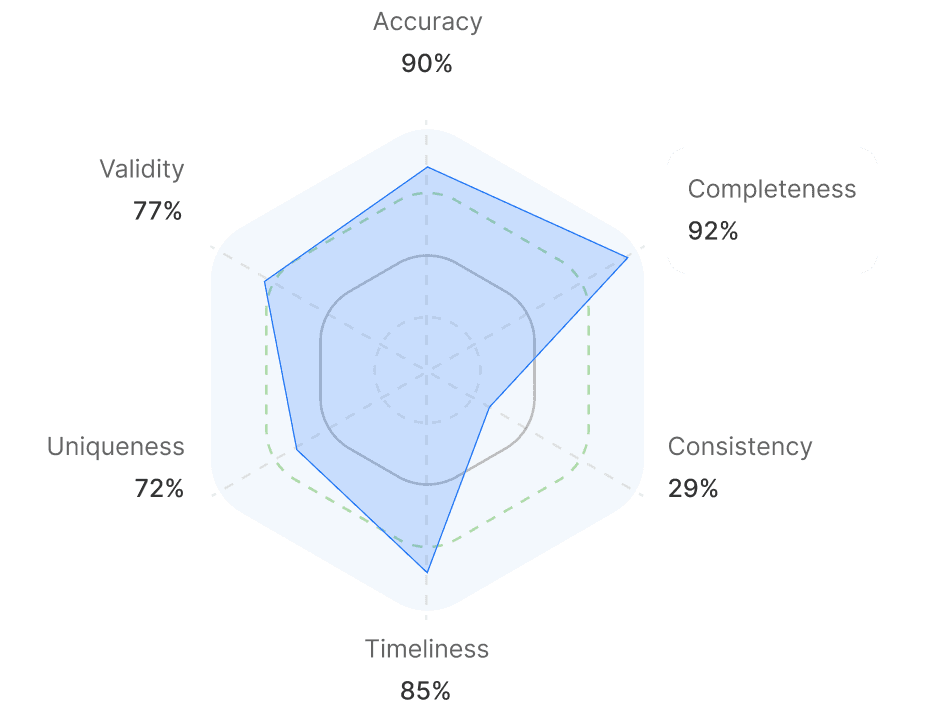
Data Quality
Combine cataloging with automated data quality checks to detect errors, anomalies, and missing values before they propagate downstream
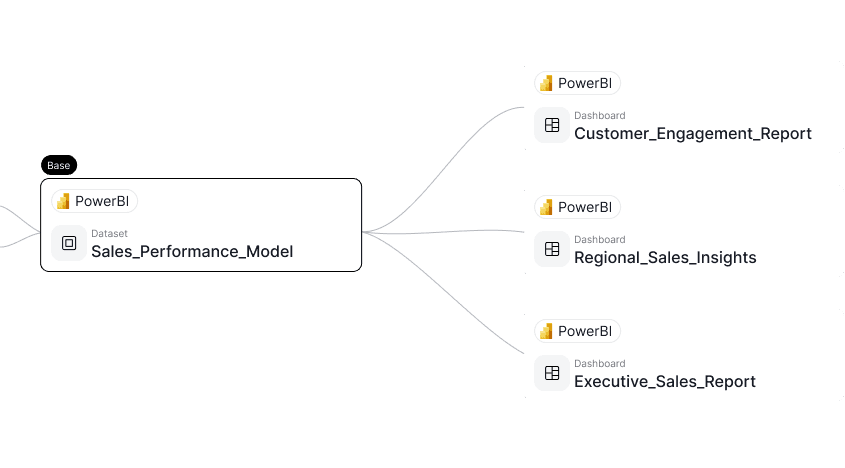
Data Lineage
Track how data flows across systems automatically. Visualize transformations, dependencies, and impacts to ensure transparency, support compliance, and reduce errors.

Data Governance
Control who can view or edit different parts of the catalog. Assign clear ownership, manage approvals, and ensure accountability across your data ecosystem.

Piotr Kononow
Founder
Start your enterprise
data catalog today
Provide self-service data access to everyone and simplify data discovery.

